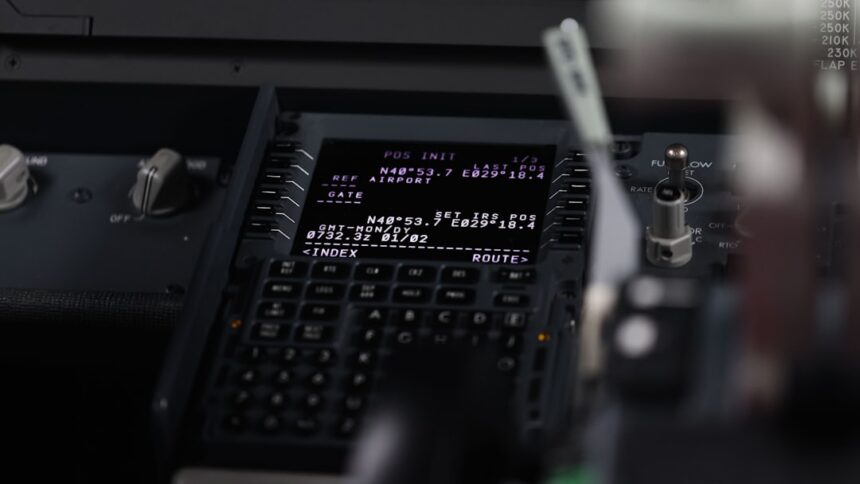In the contemporary landscape of warfare, the emergence of cyber military technology has revolutionized the way nations engage in conflict and protect their interests.
As nations increasingly rely on digital systems for critical functions, the significance of cyber military technology has grown exponentially.
It serves not only as a means of offense but also as a crucial component of defense, shaping the dynamics of modern military engagements. The integration of cyber capabilities into military operations marks a paradigm shift from traditional warfare, where physical confrontations dominated. Today, the battlefield extends beyond geographical boundaries, encompassing virtual realms where information can be manipulated, stolen, or destroyed.
This evolution has prompted nations to invest heavily in developing sophisticated cyber capabilities, leading to an arms race in cyberspace that mirrors historical military buildups. As a result, understanding the intricacies of cyber military technology is essential for comprehending its implications on global security and international relations.
Key Takeaways
- Cyber military technology refers to the use of technology in military operations, including cyber warfare, intelligence gathering, and defense.
- The evolution of cyber warfare has seen a shift from traditional battlefield tactics to a focus on disrupting and disabling enemy networks and systems.
- Artificial intelligence plays a crucial role in cyber military technology, enabling faster threat detection, autonomous decision-making, and advanced cyber attacks.
- Advantages of cyber military technology include enhanced offensive capabilities, while disadvantages include the potential for escalation and the risk of civilian infrastructure being targeted.
- Cyber military technology has become a critical component of modern warfare, with cyber attacks being used alongside traditional military tactics.
Evolution of Cyber Warfare
The evolution of cyber warfare can be traced back to the late 20th century when the internet began to gain prominence. Initially, cyber operations were rudimentary, often limited to hacking and information theft. However, as technology advanced, so did the sophistication of cyber attacks.
The early 2000s witnessed a significant escalation in cyber warfare capabilities, with state-sponsored actors engaging in more complex operations aimed at disrupting critical infrastructure and stealing sensitive information. Notable incidents, such as the Stuxnet worm that targeted Iran’s nuclear facilities in 2010, highlighted the potential for cyber weapons to achieve strategic objectives without conventional military engagement. As nations recognized the strategic advantages offered by cyber warfare, they began to formalize their approaches.
Military doctrines evolved to incorporate cyber operations as integral components of national defense strategies. Countries like the United States, Russia, and China established dedicated cyber units within their armed forces, focusing on both offensive and defensive capabilities. This evolution reflects a broader understanding that control over cyberspace is essential for maintaining national security and asserting geopolitical influence.
The ongoing development of cyber warfare tactics continues to shape the nature of conflicts, blurring the lines between peace and war.
Role of Artificial Intelligence in Cyber Military Technology

Artificial intelligence (AI) has emerged as a transformative force within the realm of cyber military technology. Its ability to process vast amounts of data and identify patterns makes it an invaluable asset for both offensive and defensive operations. AI-driven algorithms can analyze network traffic in real-time, detecting anomalies that may indicate a cyber attack.
This capability enhances situational awareness for military commanders, allowing them to respond swiftly to emerging threats. Furthermore, AI can automate repetitive tasks, freeing up human operators to focus on more complex decision-making processes. On the offensive side, AI can be employed to develop sophisticated malware capable of adapting to countermeasures employed by adversaries.
Machine learning algorithms can analyze previous attacks and learn from them, enabling the creation of more effective cyber weapons. Additionally, AI can assist in conducting psychological operations by analyzing social media trends and crafting targeted disinformation campaigns. As AI technology continues to advance, its integration into cyber military operations will likely deepen, raising questions about the ethical implications of autonomous decision-making in warfare.
Advantages and Disadvantages of Cyber Military Technology
| Advantages | Disadvantages |
|---|---|
| Enhanced defense capabilities | Increased potential for cyber warfare |
| Improved intelligence gathering | Risk of cyber attacks on own systems |
| Ability to disrupt enemy communication | Potential for escalation of conflicts |
| Efficient and cost-effective compared to traditional military methods | Ethical and legal concerns regarding cyber warfare |
The advantages of cyber military technology are manifold. One of the most significant benefits is the ability to conduct operations with a degree of anonymity that traditional military engagements cannot offer. Cyber attacks can be launched from anywhere in the world, making it challenging for adversaries to attribute actions to specific actors.
This anonymity can deter potential aggressors and provide nations with strategic leverage in international relations. Additionally, cyber operations often require fewer resources compared to conventional military actions, allowing states with limited budgets to project power effectively. However, the reliance on cyber military technology also presents considerable disadvantages.
The very anonymity that provides strategic advantages can lead to escalation and miscalculation, as nations may respond aggressively to perceived threats without fully understanding the source or intent behind an attack. Furthermore, the interconnectedness of global networks means that a successful cyber operation can have far-reaching consequences beyond the intended target. Civilian infrastructure may be inadvertently affected, leading to collateral damage that undermines public trust and escalates tensions between nations.
As such, while cyber military technology offers new avenues for engagement, it also introduces complexities that must be carefully navigated.
Cyber Military Technology in Modern Warfare
In modern warfare, cyber military technology has become an indispensable tool for both offensive and defensive strategies. Nations are increasingly recognizing that control over cyberspace is as crucial as control over land, air, and sea. Cyber operations can disrupt enemy communications, degrade their operational capabilities, and even influence public perception through information warfare.
The ability to conduct precision strikes in cyberspace allows militaries to achieve strategic objectives without resorting to kinetic force, thereby minimizing casualties and collateral damage. Moreover, the integration of cyber capabilities into joint military operations has transformed how conflicts are fought. Cyber units work alongside traditional forces to provide real-time intelligence and support decision-making processes on the battlefield.
This synergy enhances overall operational effectiveness and allows for more agile responses to dynamic threats. As conflicts become more complex and multifaceted, the role of cyber military technology will continue to expand, shaping the future of warfare in profound ways.
Cyber Security and Defense

As nations invest heavily in developing offensive cyber capabilities, the importance of robust cybersecurity measures cannot be overstated. Cyber defense strategies are essential for protecting critical infrastructure from potential attacks that could disrupt essential services or compromise national security. Governments are increasingly prioritizing cybersecurity initiatives, establishing frameworks for collaboration between public and private sectors to enhance resilience against cyber threats.
Effective cybersecurity involves not only technological solutions but also comprehensive training programs for personnel tasked with defending networks. Human error remains one of the most significant vulnerabilities in cybersecurity; therefore, fostering a culture of awareness and vigilance is crucial. Additionally, international cooperation is vital in addressing transnational cyber threats that transcend borders.
Collaborative efforts among nations can lead to the development of best practices and shared intelligence that bolster collective defenses against malicious actors.
Ethical and Legal Implications of Cyber Military Technology
The rise of cyber military technology raises profound ethical and legal questions that challenge traditional notions of warfare. The anonymity afforded by cyber operations complicates accountability; determining who is responsible for a cyber attack can be a daunting task. This ambiguity raises concerns about potential violations of international law and norms governing armed conflict.
The use of autonomous systems powered by artificial intelligence further complicates these issues, as decisions made by machines may lack human oversight or moral consideration. Moreover, the potential for collateral damage in cyberspace poses ethical dilemmas regarding proportionality and discrimination in targeting decisions. Unlike conventional warfare, where physical destruction is often visible and quantifiable, the effects of cyber attacks can be insidious and far-reaching.
The impact on civilian populations may not be immediately apparent but can lead to long-term consequences that undermine societal stability. As nations navigate these ethical challenges, establishing clear guidelines and frameworks for responsible conduct in cyberspace will be essential for maintaining global order.
Cyber Military Technology in Intelligence Gathering
Cyber military technology plays a pivotal role in intelligence gathering, providing nations with unprecedented access to information about adversaries’ capabilities and intentions. Through sophisticated surveillance techniques and data analysis tools, military organizations can monitor communications, track movements, and assess vulnerabilities within enemy networks. This intelligence is invaluable for informing strategic decision-making and shaping operational plans.
The ability to gather intelligence through cyber means also raises concerns about privacy and civil liberties. As governments expand their surveillance capabilities under the guise of national security, questions arise regarding the balance between security interests and individual rights. The potential for abuse of power is significant; therefore, establishing oversight mechanisms is crucial to ensure that intelligence-gathering activities remain within legal and ethical boundaries.
Future Trends in Cyber Military Technology
Looking ahead, several trends are likely to shape the future landscape of cyber military technology. One prominent trend is the increasing integration of artificial intelligence into cyber operations. As AI technologies continue to evolve, their applications in threat detection, response automation, and predictive analytics will become more sophisticated.
This evolution will enable militaries to stay ahead of emerging threats while also raising new ethical considerations regarding autonomous decision-making. Another trend is the growing emphasis on resilience in cybersecurity strategies. As adversaries become more adept at launching sophisticated attacks, nations will need to prioritize not only prevention but also recovery capabilities.
Developing robust incident response plans and fostering collaboration among stakeholders will be essential for mitigating the impact of successful cyber attacks. Additionally, as global connectivity continues to expand through emerging technologies like 5G and the Internet of Things (IoT), new vulnerabilities will emerge that require innovative approaches to cybersecurity.
International Cooperation and Cyber Military Technology
In an increasingly interconnected world, international cooperation is paramount in addressing the challenges posed by cyber military technology. Cyber threats often transcend national borders; therefore, collaborative efforts among nations are essential for developing effective responses. Initiatives such as information-sharing agreements and joint exercises can enhance collective cybersecurity capabilities while fostering trust among nations.
Furthermore, establishing international norms governing state behavior in cyberspace is crucial for promoting stability and reducing tensions. Efforts by organizations such as the United Nations to facilitate dialogue on cybersecurity issues reflect a growing recognition of the need for multilateral approaches to address shared challenges. By working together, nations can develop frameworks that promote responsible conduct in cyberspace while deterring malicious activities.
The Impact of Cyber Military Technology on Geopolitics
The advent of cyber military technology has significantly altered the geopolitical landscape, reshaping power dynamics among nations. Countries with advanced cyber capabilities can exert influence beyond traditional means, leveraging their technological prowess to achieve strategic objectives without engaging in direct conflict. This shift has led to a reevaluation of national security strategies as states seek to enhance their own cyber capabilities while countering those of adversaries.
Moreover, the proliferation of cyber military technology has heightened tensions between major powers, leading to an arms race in cyberspace reminiscent of historical rivalries during the Cold War era. As nations vie for dominance in this new domain, concerns about escalation and miscalculation loom large. The potential for unintended consequences arising from cyber operations underscores the need for diplomatic engagement and dialogue among nations to mitigate risks associated with this evolving landscape.
In conclusion, cyber military technology represents a transformative force in modern warfare with far-reaching implications for national security and international relations. As nations navigate this complex terrain, understanding its evolution, advantages and disadvantages, ethical considerations, and future trends will be essential for fostering stability in an increasingly interconnected world.
The future of military technology is increasingly intertwined with advancements in cyber capabilities, as nations around the world recognize the strategic importance of cyber warfare. As military operations become more reliant on digital infrastructure, the need for robust cybersecurity measures and innovative cyber strategies becomes paramount. An insightful article discussing these developments can be found on In The War Room’s website. For a deeper understanding of how cyber technology is shaping the future of military operations, you can read more in this related article.
🔍WATCH THIS! The Secret Weakness That Will Break The US Military🧭
FAQs
What is the future of military technology in cyber warfare?
The future of military technology in cyber warfare is focused on developing advanced cyber capabilities to defend against and launch cyber attacks. This includes the use of artificial intelligence, machine learning, quantum computing, and advanced encryption techniques.
How is artificial intelligence (AI) being used in military cyber technology?
AI is being used in military cyber technology to automate cyber defense and response processes, identify and analyze cyber threats, and develop predictive analytics to anticipate and prevent cyber attacks.
What role does quantum computing play in the future of military cyber technology?
Quantum computing has the potential to revolutionize military cyber technology by enabling the development of more secure encryption methods, faster data processing for cyber defense and offense, and the ability to break existing encryption used by adversaries.
What are the challenges in the future of military cyber technology?
Challenges in the future of military cyber technology include the need to stay ahead of rapidly evolving cyber threats, ensuring the security and reliability of advanced cyber systems, and addressing ethical and legal considerations in the use of cyber warfare tactics.
How will military cyber technology impact future warfare?
Military cyber technology will impact future warfare by providing new capabilities for both offensive and defensive cyber operations, influencing the strategies and tactics used in traditional military operations, and potentially changing the nature of conflict in the digital age.



